
TrackQuiz
Enjoy a live quiz night in your browser. Track Quiz is a website that turns your Spotify playlists into real-time multiplayer music quiz.
Fullstack Website
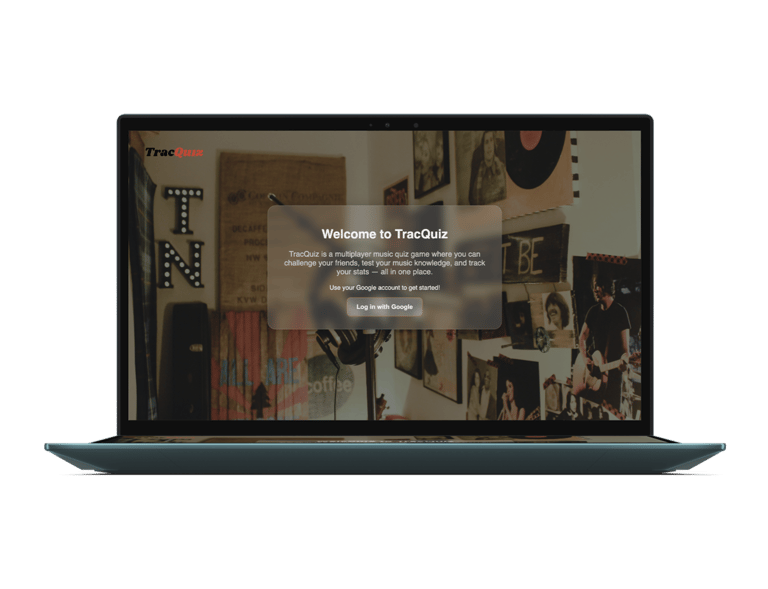

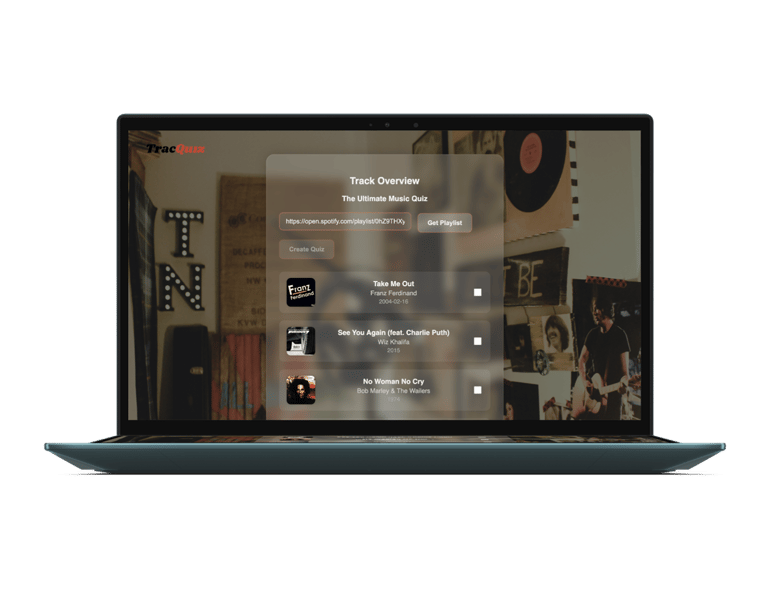

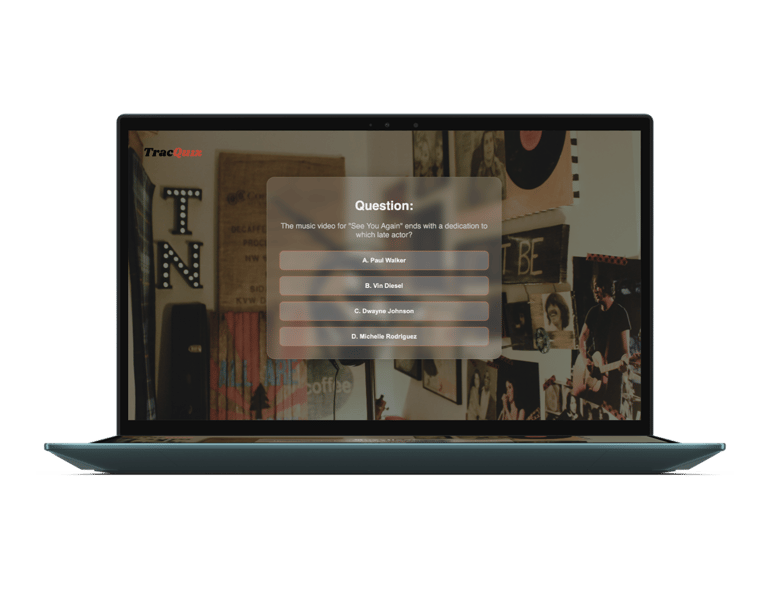

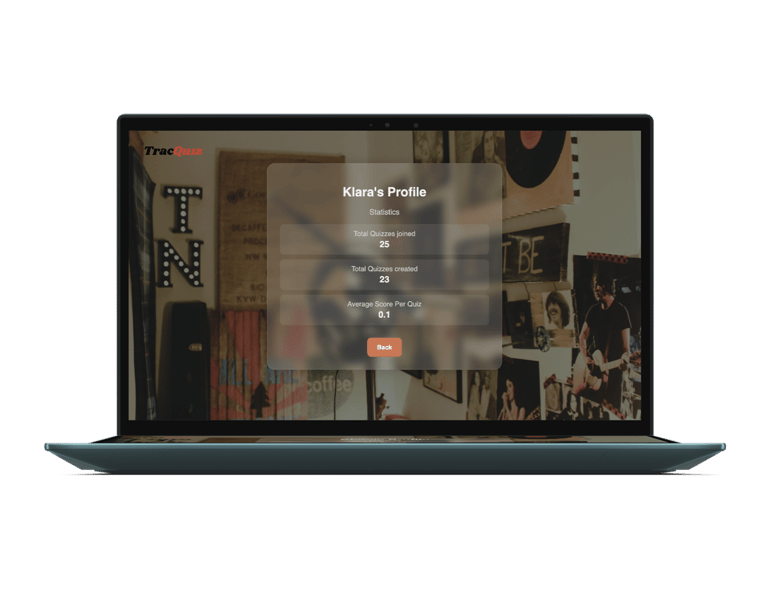

Project Overview
This course project involved creating a multiplayer music quiz web app connected to Spotify, designed to be played live with friends for a more engaging and social experience. We worked through a design process from ideation and prototyping to user testing and iteration, focusing on a clear and intuitive flow for hosting, joining, and playing quizzes. The app was built in React with a structured architecture. This kept the interface simple while still supporting real-time interaction and quiz logic. The project combined user-centered design with technical development.
Course
Tools
Technologies
Time Frame
Interaction Programming and the Dynamic Web 7.5 credits KTH
Jan 2025-May 2025 50% study phase
React, JavaScript, HTML & CSS, Firebase, React Router
Figma, Excel, Visual Studio Code, GitHub

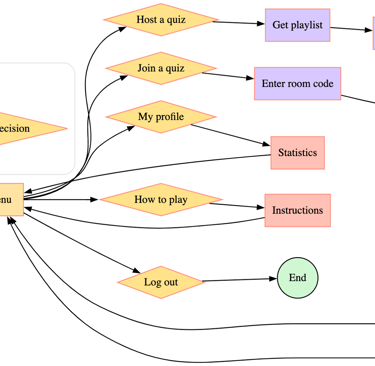
The process
Goal and Constraints
Deliver a fully working website built from scratch in code. Because the course emphasized implementation, we shortened the formal design process (no deep research, personas, POV/HMW). We focused on a lean, test-driven path to get a usable product live.
Approach (overview)
User Flow
Then we mapped out the user flow. End-to-end paths for Host and Guest from sign-in to scoreboard. This clarified which screens, decisions, and system states we actually needed and worked as a blueprint for information architecture and low-fi wireframes.
Low-Fidelity Wireframes
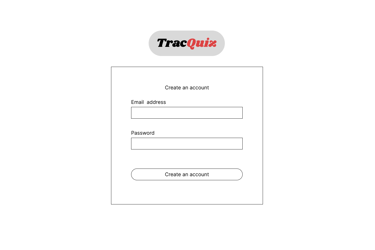

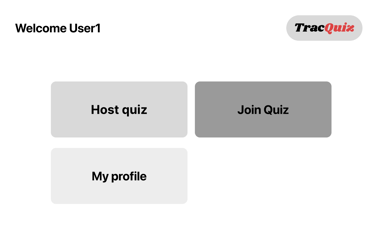

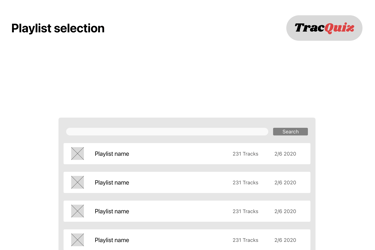

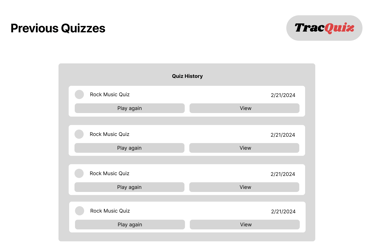

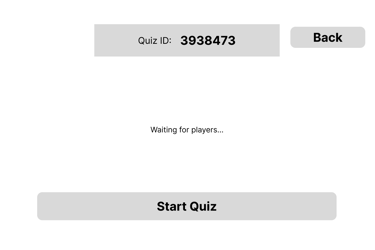

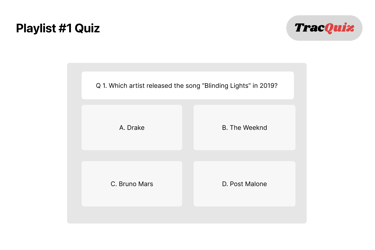

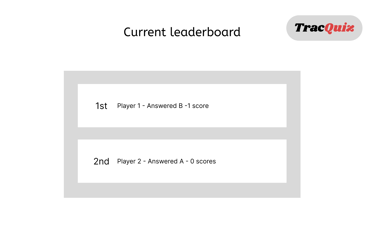

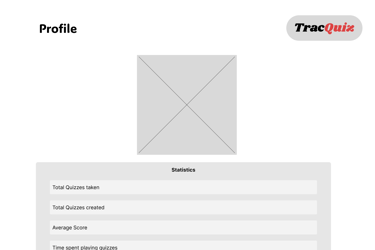

Sketches in Figma to explore navigation, different layouts, and screen hierarchy (Host vs. Guest, replay vs. create new).
Usability testing on LoFi wireframes
Method: Moderated, task-based usability testing (think-aloud) with 4 participants on a low-fi prototype.
Tasks given
Create an account – sign up and get started.
Visit your profile – explore info, then navigate back home.
Host a quiz (replay) – find an old quiz, start it.
Create a new quiz – use a favorite playlist to set up a fresh quiz.
Usability improvements (prioritized)
Clarify account flow – state that Google login + connect Spotify after login.
Easier “Home” – add Home button/tooltip (logo wasn’t obvious).
Song ↔ question logic – show dynamic counter/explanation.
Setting labels – tooltips (e.g., “instant feedback”).
Replay confirmation – preview/confirm before jumping to waiting room.
Lobby feedback – show who joined + simple countdown/ready state.
Player question view – display full question on player screen.
Answer feedback – highlight selected option when the correct answer is revealed.
Clear end of game – consistent results/summary screen.
New feature suggestions
Quiz preview before starting (especially for old quizzes).
Duplicate & edit a previous quiz.
Host insights – show which answers each player chose in real time.
Progress indicators – question counter / mini live leaderboard between questions.
Richer profiles – badges/achievements, history, compare with friends.
Playlist previews – audio/sample or song list before building the quiz.
From Lo-Fi to Full Build (Tech)
After the lo-fi test, we shortened the design cycle and moved straight to building the full website, including the test insights into the implementation (clearer login, home navigation, songs↔questions logic, lobby feedback)
React (SPA) + React Router; JavaScript, HTML, CSS
MVP (Model–View–Presenter) architecture
Firebase: Auth (Google Sign-In), Firestore (realtime)
Spotify Web API for playlists/tracks
Gemini API for AI-generated questions
Realtime room codes & lobby/quiz sync
Git & GitHub for versioning; env vars for API keys/secrets
User Testing on Ready App
Method: Moderated, task-based usability testing (think-aloud) with 6 participants (3 Hosts, 3 Guests) on the developed product.
Tasks given
Host
Sign in with Google
Learn how to play
View profile
Create a quiz
Start quiz when guests join
Finish quiz
Return to menu
Guest
Learn how to play
View profile
Join a quiz (enter session ID + name)
Finish the quiz
Return to menu
Key observations
Hosts
Google sign-in felt fast and clear.
“How to Play” was concise and useful.
Profile was clean; desire for badges/history/comparison.
Playlist fetch + track list was quick; good affordance when “Create Quiz” becomes enabled.
Waiting room worked; liked seeing joins—asked for ready-check.
During rounds, hosts lacked live visibility of players’ choices.
Wanted a question/quiz preview before starting.
Guests
“How to Play” clear; profile fine but wanted richer stats.
Join with code worked, but lobby lacked player/host visibility.
On player device, full question wasn’t visible (only options).
After answering, no highlight of selected option; easy to forget choice.
End of game felt abrupt; wanted a clear results summary.
Wanted progress cues (question counter) and more independence from host screen.
Usability improvements (prioritized)
Show the full question on the player screen.
Highlight the player’s selected answer on reveal.
Display all player names in the lobby (host & guests).
Add a ready-check before starting.
Provide a clear end-of-game results/summary screen.
Clarify tracks ↔ questions mapping (short explanation or dynamic counter).
Add a question counter/progress indicator during play.
New feature suggestions
Host insights: show which answer each player selected in real time.
Preview a generated question/quiz before start (esp. for replays).
Live mini-leaderboard between questions.
Richer profiles: badges/achievements, history, compare with friends.
Playlist previews: audio/sample or song list before building.
Match history / friend tracking and reuse previous quizzes (duplicate & edit).
Final Implementation & Wrap-Up
After the “Ready app” test, we programmed the last round of improvements and finalized the site for hand-off.
What we shipped in this round
Player clarity
Show the full question on the player’s screen.
Highlight the selected answer on reveal.
Lobby confidence
Player list (host & guests) and session host visibility.
Game flow
End-of-game summary (scores, winner).
Usability polish
Clear Home navigation.
Outcome and learning outcomes
Outcome
Shipped a production-ready MVP that delivers the live music-quiz loop (host/guest, realtime play, scoreboard) with Spotify + Gemini integrated.
Addressed the highest-impact usability issues from both test rounds.
The site still has clear improvement areas, especially in UX (e.g., richer profiles, clearer end-of-game flow, player independence from the host screen, ready-check, quiz preview, progress cues, live insights for hosts).
Stable foundation: clean React (MVP architecture) + Firebase realtime setup, making future iterations straightforward.
Learning Outcomes
Design × Engineering integration: Learned to translate user flows into routes, presenters, and data models to keep views simple while the logic lives in presenters/hooks.
Value of the design process: Skipping full discovery (personas/POV/HMW) saved time but increased ambiguity and rework. I now clearly see how a lightweight, early design process aligns the team around shared goals and speeds delivery later.
Task-based usability testing: Practiced moderating think-aloud sessions, writing actionable tasks, and turning findings into a prioritized backlog (impact/effort).
MVP mindset: Prioritized core value first; learned to slice features, set guardrails, and ship incrementally rather than aiming for perfection.
Technical growth: Strengthened skills in React + React Router, MVP (Model–View–Presenter), Firebase Auth/Firestore realtime, Spotify OAuth + Web API, and Gemini-powered content generation.
Collaboration & delivery: Improved at Git-based workflows.
IDEATION - USER FLOW - LOFI WIREFRAME - USABILITY TESTING - CODE PRODUCT - USABILITY TESTING - FINAL IMPLEMENTATION
Ideation
With tight time pressure, we skipped formal ideation (interviews, personas, POV/HMW, Crazy 8s, storyboards etc.). Instead we based this step on our team’s interest in live music quizzes and a clear gap: a real-time, Spotify-connected version. Guiding principles: social & simple (host/guest with room code), leverage Spotify to cut setup, and code-first feasibility.
